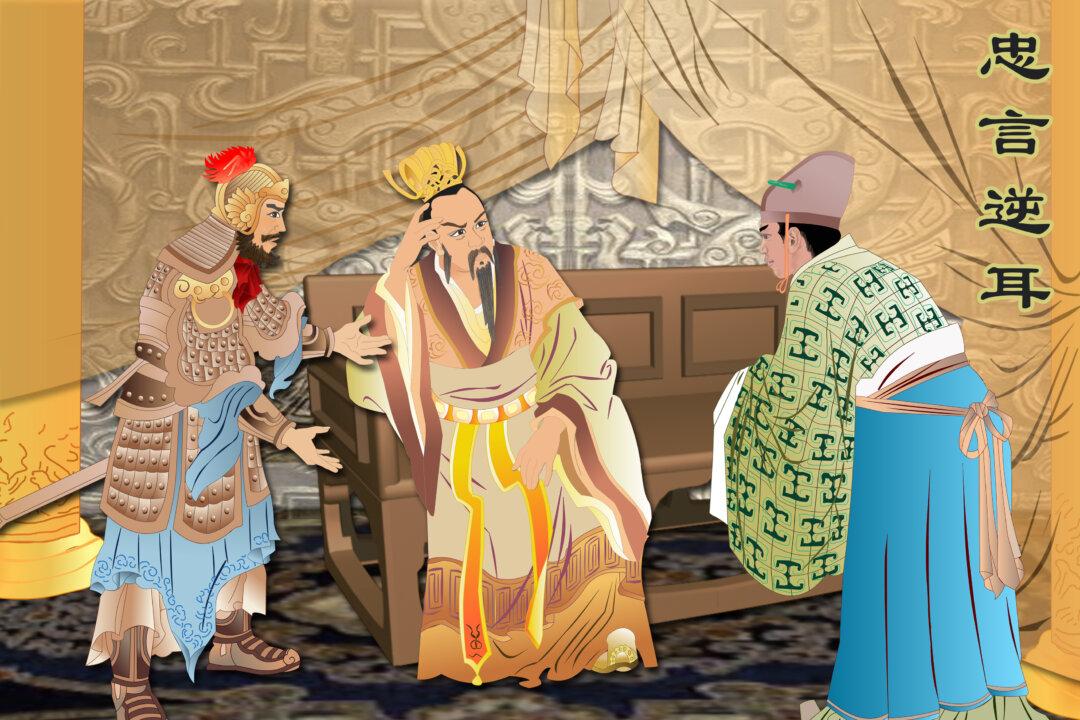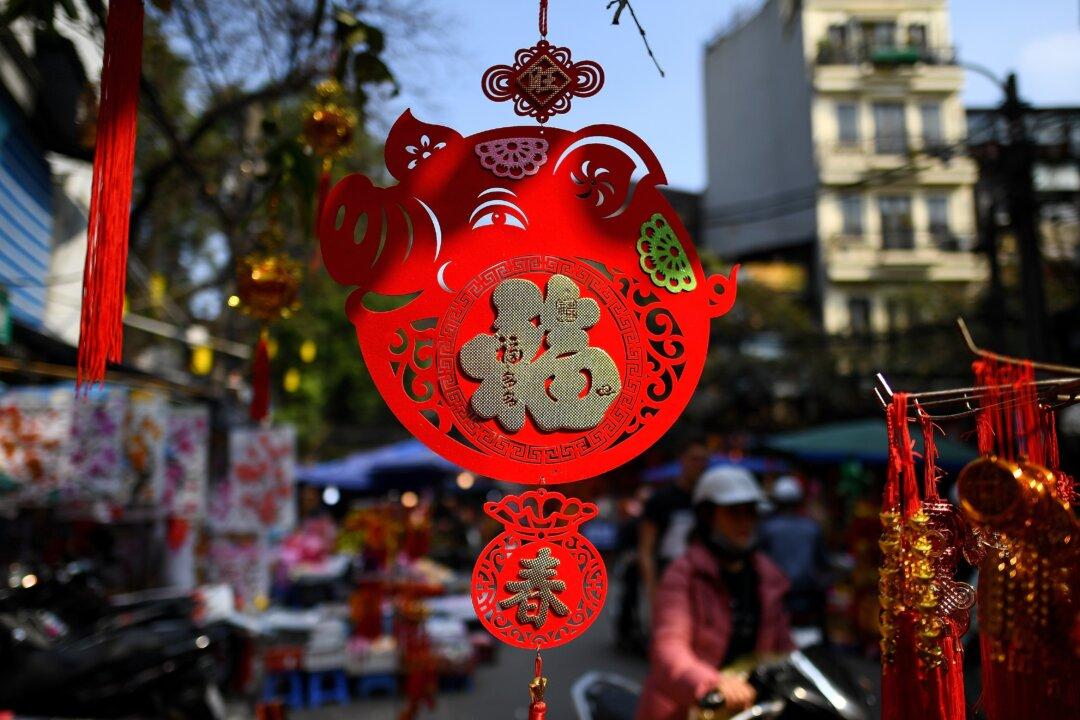Prior to the end of the Qin Dynasty (221–206 B.C.), the leader of the rebellion troops, Liu Bang, occupied the Qin palace. Liu was amazed by what he found in the palace— the splendid architecture, various treasures, and beautiful court ladies.
Having lived in the rural countryside as a fugitive for most of his adult life, Liu became fascinated by the palace. He decided to stay in the palace and experience the life of the Qin emperor for a few days before he returned to the base camp where his troops were waiting.
When Fan Kuai, a general of Liu’s troops and Zhang Liang (1), his chief military strategist, heard about Liu’s intention, they hurried to the palace and advised Liu not to stay there.
Fan asked Liu: “Do you want to have the entire country or do you just want to be a very rich man?”
“Of course I would like to have the whole country!” Liu answered.
With great sincerity, Fan then said to Liu: “You see there are countless treasures and thousands of beautiful ladies in the palace. All these things are the very ones that caused the collapse of the Qin Dynasty. I hope that you will immediately return to our camp; you must not stay in the palace.”
Liu seemed not to care at all about the general’s advice and still insisted on staying in the palace.
Zhang Liang then stepped forward and said to Liu: “The Qin emperor lived a luxurious life and he was violent and corrupt. That is why the people rebelled against him and defeated the Qin army. You have overthrown a brutal Qin ruler that had mistreated the people.”
“There is a saying: ‘Loyal and honest advice is often unpleasant to the ear yet is beneficial for guiding one’s behavior, while effective medicine tastes bitter yet is beneficial for curing one’s illness.’ What the general said to you was good advice.”
Liu Bang then realized that there would indeed be bad consequences if he stayed in the palace, so he quickly returned to their base camp.
The above story is included in the Records of the Grand Historian (2), written by Sima Qian, in genealogy No. 55 about Zhang Liang,
The idiom忠言逆耳 (zhōng yán nì ěr), literally “honest [good] advice jars the ear” evolved from this story. It basically means that sincere advice is often different from one’s own ideas and thus one might find it difficult to accept.
Note:
- Zhang Liang (around 262–189 B.C.), was a chief military strategist, minister, and adviser to Liu Bang who was the founding emperor of the Han Dynasty. Zhang Liang has been remembered as one of the Three Heroes of the Western Han period (206 B.C. – A.D. 23).
- The “Records of the Grand Historian” (史記, Shǐjì), written by the great Chinese historian Sima Qian (135–86 B.C.), contains over 130 volumes and covers a period from about 2,600 B.C. to 86 B.C.




